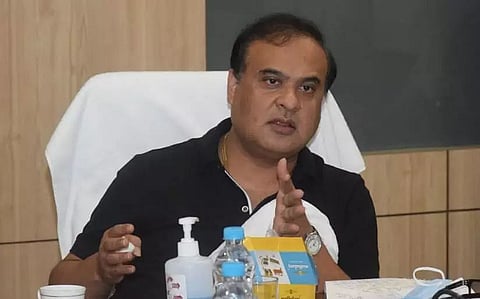
- Home
- Live Blog
- Breaking News
- Top Headlines
- Cities
- NE News
- Sentinel Media
- Sports
- Education
- Jobs

The decision of the Government of Assam to shut down madrasas in the state is not now. In fact it had been announced by state education minister Himanta Biswa Sarma way back in February this year. But, while that decision has now reached the implementation stage, a section of politicians, political parties and individuals have started a campaign against it. A section of media operating from the national capital has also joined the bandwagon. What these people and parties have refused to understand is that the education minister had in February itself also stated that the decision was taken in view of the fact that a number of madrasas – and also Sanskrit tols – have been functioning with government funds, and that it was not the job of a secular government to provide funds from the public exchequer for religious education.
The minister in February itself had also clarify the decision of the Government of Assam to shut down madrasas in the state is not now. In fact it had been announced by state education minister Himanta Biswa Sarma way back in February this year. But, while that decision has now reached the implementation stage, a section of politicians, political parties and individuals have started a campaign against it. A section of media operating from the national capital has also joined the bandwagon. What these people and parties have refused to understand id that the government was not shutting down or banning madrasas – and Sanskrit tols – which are being funded and run by individuals and NGOs. As readers would recall, minister Sarma had in February stated that all government-funded madrasas and tols would be converted into regular schools and that teachers who were so long getting government salary in such institutions will continue to get that benefit till they attain the age of superannuation. The announcement of February had incidentally also evoked sharp criticism and opposition from some Xatras and other Hindu organisations, because it covers the Sanskrit tols too. But, it is important that government funds should not be utilised for religious education. What is interesting to note is that some people – and a section of so-called 'national' media have only selectively chosen the madrasa part and deliberately chosen not to speak or mention about the Sanskrit tols. It also looks like that they have refused to see or mention that the education minister has clearly said that all madrasas functioning under the Assam High Madrasa Board would continue to function as 90 per cent of their syllabus comprise general subjects. What is however most important to note is that there are a large number of madrasas in Assam run privately without any registration or permission of the government, and the government is not aware of exactly what kind of education these privately operating madrasas have been imparting. It is the bounden duty of the government to conduct a thorough inspection and investigation into the functioning and activities of such private and unregistered madrasas from various angles.
There is a general apprehension that there is some 'mystery' or 'secrecy' behind the running of these illegal madrassas. This apprehension or suspicion was further strengthened when a number of such madrasas were raided by the National Investigation Agency (NIA) during the investigations carried out in several lower Assam districts in connection with the Burdwan blast of October 14, 2014 in West Bengal, which was the handiwork of the notorious Jamaat-ul Mujahideen (JMB), an international fundamentalist terrorist gang operating with its base in Bangladesh. Moreover, according to education minister Himanta Biswa Sarma, the government of Assam has been spending about Rs 260 crore every year for the provincialised madrasas. Despite the government spending such a huge sum from the public exchequer, the students attending these institutions are being deprived of modern education including science and mathematics.
As minister Sarma stated on Saturday, a survey has revealed that while many students enrolled in madrasas want to become doctors and engineers, the focus on religious teaching has prevented them from their basic right of choosing a subject of their choice. Regarding private madrasas, the government should not only make it compulsory for their registration with the education department, but also conduct a thorough inspection of these institutions before final registration. After all, the BJP-led coalition government of Sarbananda Sonowal had come to power in 2016 with the promise of protecting the jaati-maati-bheti of the indigenous communities of the state. Stern measures against illegal madrasas itself can be one measure of protecting the jaai-maati-bheti of the indigenous communities of Assam.